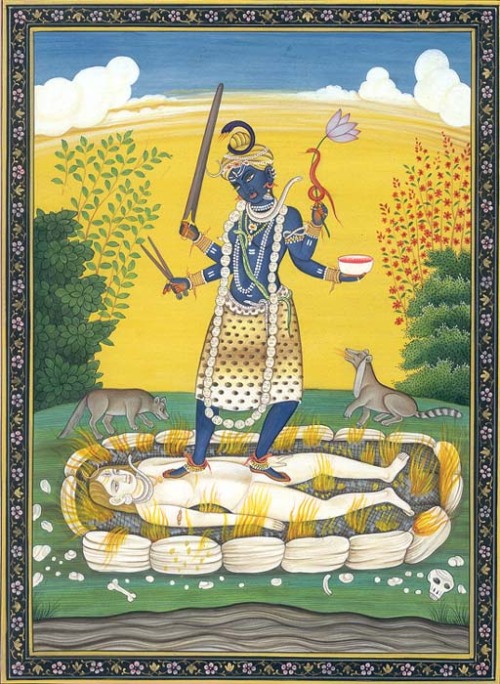Practice
Posted on 2011.12.22 at 20:00Doom: Daudz laimes, maksāsim mazāk
Mūza: Iļģi

| Februāris 2012 | 01 | 02 | 03 | 04 | 05 | 06 | 07 | 08 | 09 | 10 | 11 | 12 | 13 | 14 | 15 | 16 | 17 | 18 | 19 | 20 | 21 | 22 | 23 | 24 | 25 | 26 | 27 | 28 | 29 |
Virs zemes, debesīs un internetā


Kali is shown standing on the prone, inert or dead body of Shiva. This may be interpreted in various ways but the most common is that Mahakali represents Shakti, the power of pure creation in the universe, and Shiva represents pure Consciousness which is inert in and of itself. While this is an advanced concept in monistic Shaktism, it also agrees with the Nondual Trika philosophy of Kashmir, popularly known as Kashmir Shaivism and associated most famously with Abhinavagupta. There is a colloquial saying that “Shiva without Shakti is Shava” which means that without the power of action (Shakti) that is Mahakali (represented as the short “i” in Devanagari) Shiva (or consciousness itself) is inactive; Shava means corpse in Sanskrit and the play on words is that all Sanskrit consonants are assumed to be followed by a short letter “a” unless otherwise noted. The short letter “i” represents the female power or Shakti that activates Creation. This is often the explanation for why She is standing on Shiva, who is either Her husband and complement in Shaktism or the Supreme Godhead in Shaivism. |
